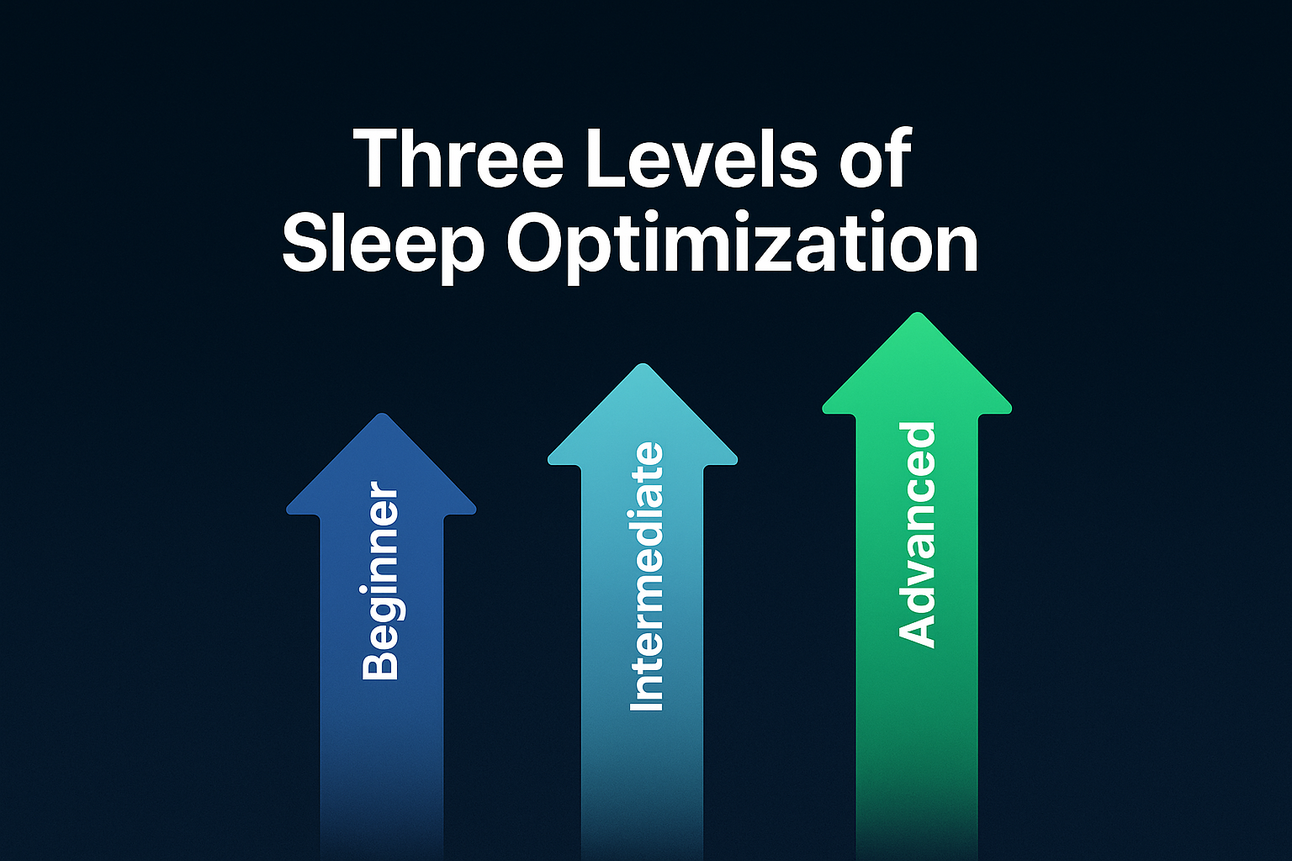- The Long Game
- Posts
- Sleep Architecture and Cognitive Performance
Sleep Architecture and Cognitive Performance
Discover how sleep stages impact your career and professional success

Complete Series: Ultimate Sleep Blueprint for High Performance Series.
High achievers thrive on sharp cognitive function, creativity, and decision-making – all of which depend heavily on quality sleep. Sleep isn’t just “down time”; it’s an active state where your brain and body perform vital upkeep. Each night, you cycle through stages of non-REM (NREM) and REM sleep. Deep NREM sleep (slow-wave sleep) and REM sleep (rapid-eye-movement dreaming sleep) serve different purposes, and deficiencies in either can undercut your daytime performance.
Stages of sleep cycle from light N1 and N2, to deep N3, to REM dreaming. Each stage plays a unique role in recovery and mental
The Latest Science: Sleep’s Impact on Leadership and Creativity
Cutting-edge research confirms that sleep loss impairs the very faculties high performers rely on. Cognitive speed, memory, focus, and emotional regulation all decline when you’re running on poor sleep. Leadership abilities suffer, too – sleep-deprived leaders are seen as less inspiring and have worse judgment. In a survey of 180 business leaders, 43% admitted to not getting enough sleep most nights, and it was linked to weaker leadership performance and even financial downsides.
On the flip side, ample quality sleep supercharges creative problem-solving and innovation. REM sleep, in particular, has been shown to foster creativity by helping the brain form novel connections between ideas. One landmark study found that people who entered REM sleep (as opposed to just quiet rest) were significantly better at solving a creative problem, due to REM priming associative networks in the brain.
In short: great sleep = sharper decisions and more creative insights. Even entrepreneurial circles have caught on – as one business article aptly puts it, “restful nights, innovative days” because sleep “facilitates memory consolidation as the brain organizes and integrates information in novel ways”.
Sleep’s role in leadership and creativity is now data-informed fact. For example, a 2024 Imperial College study of 26,000 people discovered that those sleeping the recommended 7–9 hours scored highest on intelligence, reasoning, and memory tests.
In the same study, night owls (evening chronotypes) surprisingly outperformed early risers on cognitive tasks – challenging the stereotype that only early birds have an edge. The common denominator, however, was adequate sleep duration: participants who regularly logged between seven and nine hours performed best.
Meanwhile, famous figures like Margaret Thatcher or Elon Musk who boast about getting by on a few hours are the exceptions, not the rule. The research is clear that chronic short sleep undermines executive function and can even increase risk-taking and impulsivity – the opposite of the cool-headed focus high-stakes work demands.
Deep Sleep vs. REM Sleep: Two Cornerstones of Success
Not all sleep is equal. Deep sleep (N3 slow-wave sleep) and REM sleep each provide unique benefits, and you need both in balance. Here’s the breakdown:
Deep Sleep (N3) – This is the physically and mentally restorative stage. Breathing and heart rate drop to their lowest, blood pressure falls, and the brain emits slow delta waves. During deep sleep, your body releases growth hormone and repairs muscles, tissues, and immune cells. This is also when memories are consolidated and “filed away” in the brain’s long-term storage.
Deep sleep literally “cleans” the brain, clearing out metabolic waste and resetting synapses for the next day. If you skimp on deep sleep, you’ll likely feel physically drained, and you may notice learning and memory suffer. In fact, not getting enough deep sleep can cause learning difficulties, weaken your immunity (making you prone to infections), and increase long-term health risks.
Ever pulled an all-nighter and felt foggy and slow? That’s deep-sleep deprivation in action. Aim for ~20% of your sleep to be deep (around 1.5 hours if you sleep 8 hours) – which usually means going to bed early enough to catch those deep-sleep-rich first cycles of the night.
REM Sleep – Often dubbed “dream sleep,” REM is when your brain becomes highly active and most dreaming occurs, yet your body is paralyzed (so you don’t act out dreams). REM sleep kicks in about 90 minutes after you fall asleep and dominates the second half of the night.
Mentally, REM is essential for cognitive performance – it’s linked to memory consolidation (especially for complex, emotional, and procedural memories), learning, creativity, and emotional resilience. During REM, your brain processes and integrates the day’s information, finding creative connections and solutions.
A lack of REM sleep can leave you moody, irritable, and unfocused. People deprived of REM sleep experience memory issues, trouble concentrating and problem-solving, and even show signs of impaired learning.
Physically, insufficient REM has been associated with higher risk of migraines and even a higher risk of mortality in older.
In short, REM is like overnight therapy and brainstorming – skip it, and your creativity and emotional balance take a hit. Healthy adults should get about 20–25% of sleep in REM (roughly 90 minutes of an 8-hour night).
The consequences of skimping on either stage are serious: Without enough deep sleep, your body and brain don’t fully reset (expect fatigue, lowered immunity, and subpar memory). Without enough REM, you lose mental sharpness, emotional stability, and creativity (expect more irritability and slower thinking).
Many high performers “crash” because they accumulate deficits in one or both of these stages – for example, working late or drinking alcohol might rob you of REM early in the night, or an inconsistent schedule might cut short your final REM-rich sleep cycles.
The good news is that by prioritizing sleep, you can recover these deficits. Your body will self-regulate to get more deep sleep after deprivation, and proper habits will maximize REM.
Learn More here 👇
References:




:max_bytes(150000):strip_icc()/GettyImages-200514339-001-570d1f0b3df78c7d9e34ea12.jpg)




